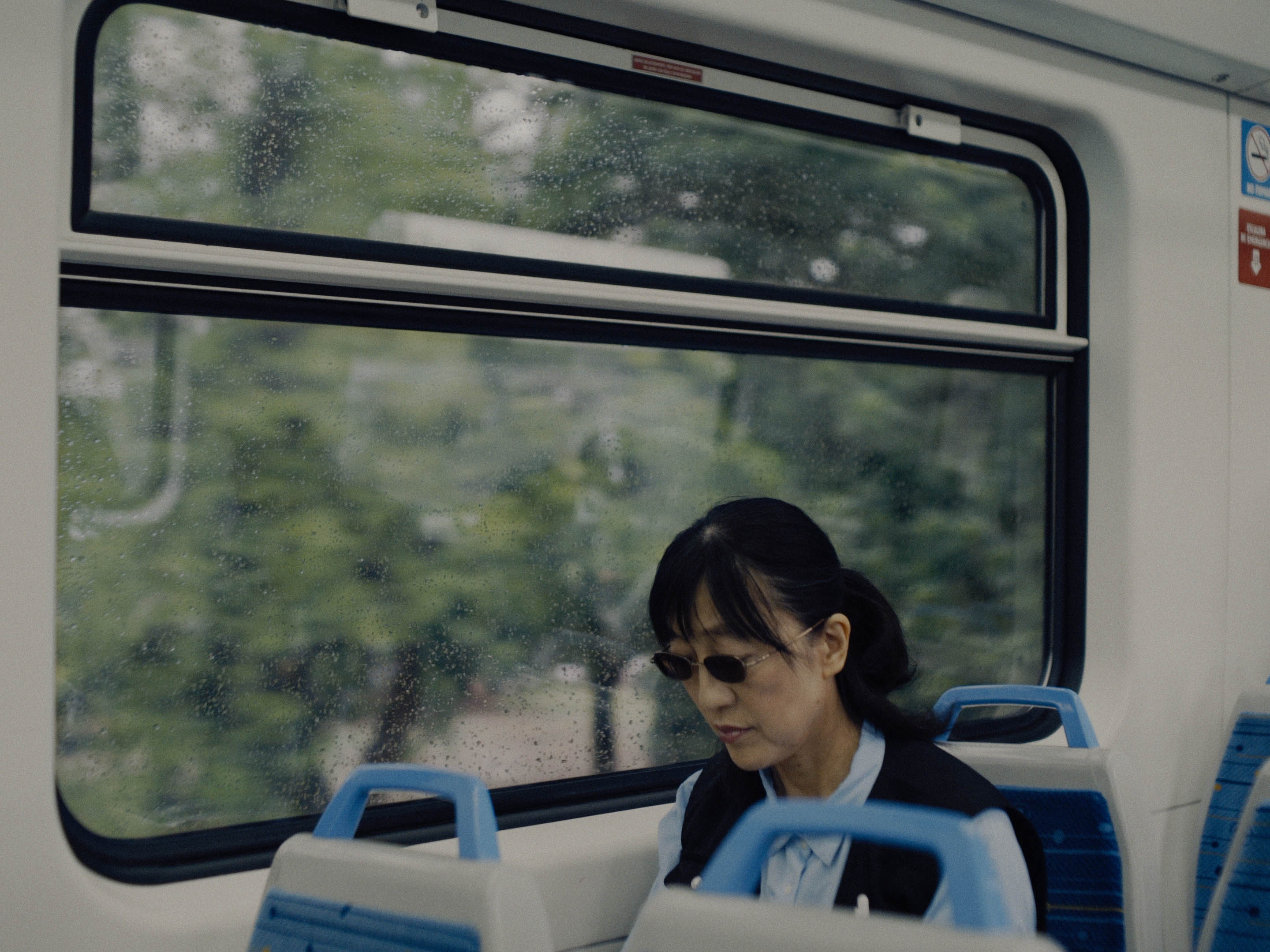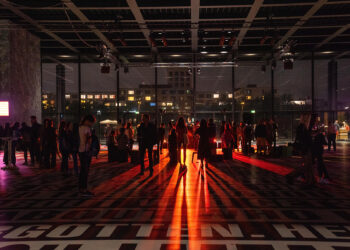The Berlin Feminist Film Week is still running until Wednesday 13th with a program that presents a wide range of topics in its films. One of those films is “Living Tongue” (AKA Lengua Viva) by Argentine director Michelle Gualda. In this interview, we talk about making feminist cinema and what it means, the situation of women in the Argentine film industry, and her short-film featuring a Japanese actress with whom she had to communicate through drawings and signs through the entire shooting.
The first thing I said to Michelle after greeting each other over skype is about the holiday on the International Women’s Day, something she likes with certain amazement. She tells me about the women’s strike in Buenos Aires. “There’s a massive Demo in downtown with several columns: the Legal Abortion one leads the others, my column is also part of it, the Anti-speciesists feminists who argue that if we want to end oppression we ought to end it for all species as well. There are also the Transfeminists, non-binary, and many other columns that feel represented by feminism.”
Maybe, feminist cinema is about democratizing our characters’ points of view and also democratize who gets to be behind the camera in order to access these topics in another fashion.
Seems to be a diversity of positions and opinions within the feminist movement that shares a common base. “It is intended to be as intersectional as possible concordant with what the black feminists from the ’60s said: ‘if it’s not intersectional is not feminism’. And in this case, if there isn’t a gender perspective is not feminism. This is a particular issue in the Argentinian agenda nowadays with a big block of radical feminists who exclude trans women and non binary identities”
So, according to them, not everyone can be a feminist? “Something like that: the entry ticket is to have a vagina, otherwise you can’t be part of it.”
What does it mean to make feminist cinema for you? “I don’t think that is up to me to define what feminist cinema is. But I do think that we, (referring to the general audience), are used to watch stories from an androcentric point of view where there is only one type of man: heterosexual, cissexual, and white. All the stories are crossed by this point of view which was praised back then when women, black people or gays couldn’t make cinema and we would have to settle for having white men tell our stories. Suddenly there was representation in the cinema for all of us allowing us to feel identified and accepted by society with it. While the resources in cinema become more available, it is important that also more voices become available as well in order to tell stories in a more suitable way. If there’s a story of a woman who is going to have an abortion, it would be interesting if it was a woman who tells you that story.
“You can find the same issue with what happened with the Awards-winning film Green book which is told from a white-saviour’s perspective, with all the best intentions, but still, the question remains Is this the best point of view to tell this story? Maybe, feminist cinema is about democratizing our characters’ points of view and also democratize who gets to be behind the camera in order to access these topics in another fashion.”
And how do you see the situation of women in general inside the film industry in Argentina? “There’s a statistic showing that 80% of students are women but that percentage is not then reflected in the industry. And so, there are many socialized women who studied the career and then can’t get a job. The reason for this can be found in prejudices within the industry where people could believe that only men can be gaffers because they will be strong enough to carry a light, for example. I also heard them suggesting to not bring a woman in because it could distract the team.” Did someone say that to your face? “Not to me, but they did to other female colleagues.
“There’s a particular dynamic that encourages masculine creativity and forces the women to mother them. So, you can see that most of the producers are women who have to channel the creative genius of men who can afford to behave out of control. I think that it helps that the most well-known Argentinian director is a woman, (Lucrecia Martel), and it helps the perception but in practice is not like that. There is a gap between the schools and the working industry with the studios not hiring women directors.

“Being unfortunately under a capitalist system this is exactly what needs to be changed because the only changing tool we have is our own economy and where we place our money. Why do they prefer men over women? Maybe is what Oprah says that the same attributes are a privilege for men and a defect in women.”
About your film Living Tongue in the Berlin Feminist Film Week, you work with a Japanese woman. How did you find her and how was working with her? “In 2017 I was conducting a casting for a video clip of the band Los Besos, which is a beautiful band. I wanted to film in a dry cleaner, and I knew after doing some research and talking to my friend Agustín Suárez, third generation of Argentine Nikkei, who told me that in the mid-’50s lots of dry cleaners were opened in the country by Japanese immigrants.
“But they didn’t speak the language, so they could only communicate through gestures without any words. I found it fascinating, how in a certain period of time we could maintain ties with people from different cultures based on non-verbal communication. So, the idea for the video clip was to change this dynamic and have an Argentine as the clerk at the dry cleaners and a Japanese client who didn’t speak Spanish.
“The problem I found with this project was that the Japanese community in Argentina is very closed and women older than fifty years didn’t participate in this kind of things outside of the Nikkei Culture. I decided to go to a Bon Odori festival to find someone with stage experience. The woman who called my attention the most was one wearing a feather jacket, socks, and sandals reading a Japanese newspaper alone at the back of the room –she was not participating at all in the festival. We crossed glances and so I came to her. I talked to the person she was with to translate me and explained to her that I was preparing a film. She looked at me, she struck her breasts and replied in English ‘Actress’. I googled her later and indeed she is an actress. We exchanged e-mails addresses and started writing to each other with the aid of Google Translate. We even met a couple of times in person for coffee to talk about the movie and her part. She always brought a Spanish-Japanese dictionary and I brought some paper and pen. We basically understood each other with the aid of the dictionary and drawings which we used the most.

“There was a moment when I asked how much did she want to earn for the part. She replied that she didn’t want any money because acting was her… She remained silent, open the dictionary and pointed the word for passion. It was the love story of my life.

 Club Lado|B|erlin
Club Lado|B|erlin






